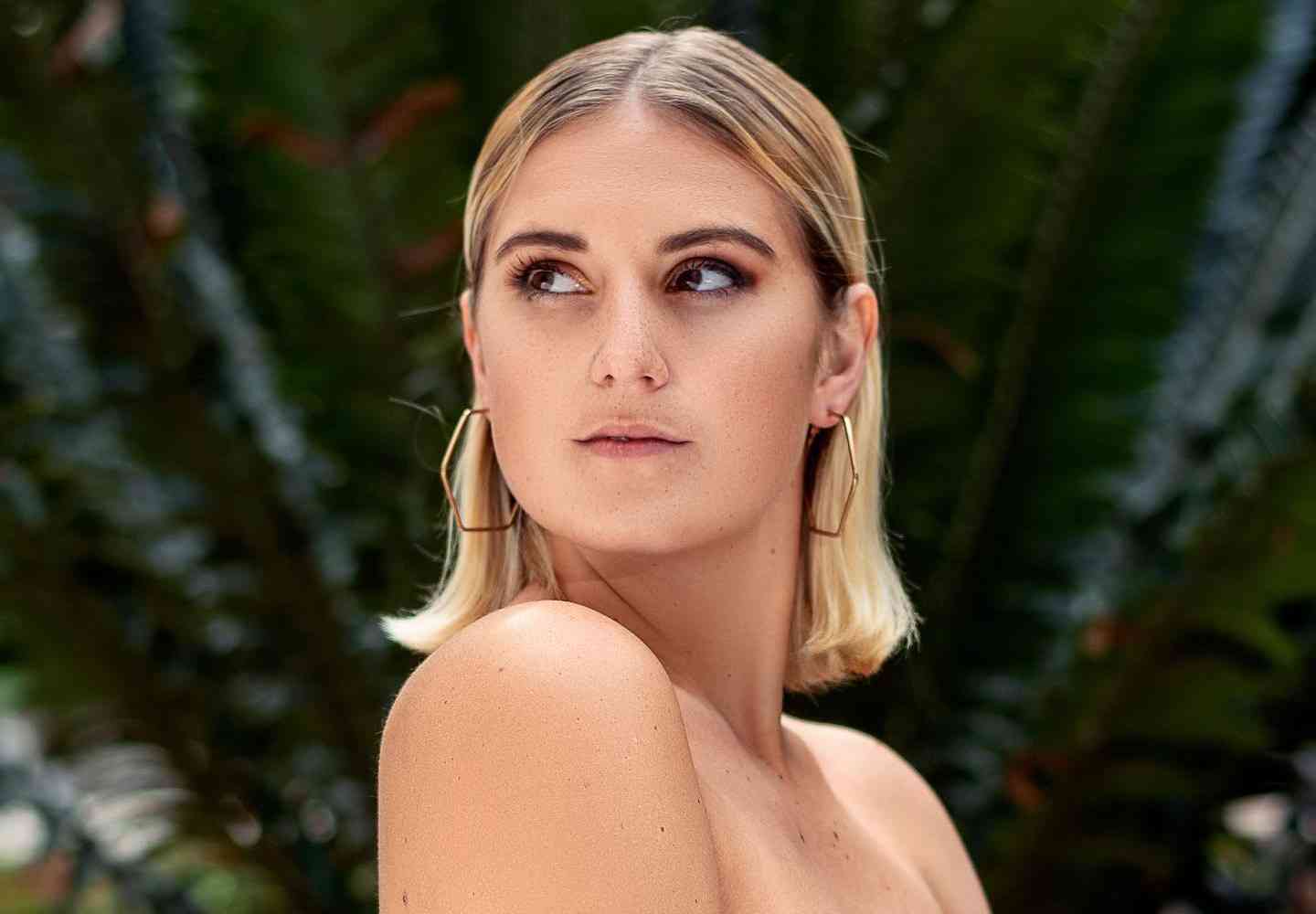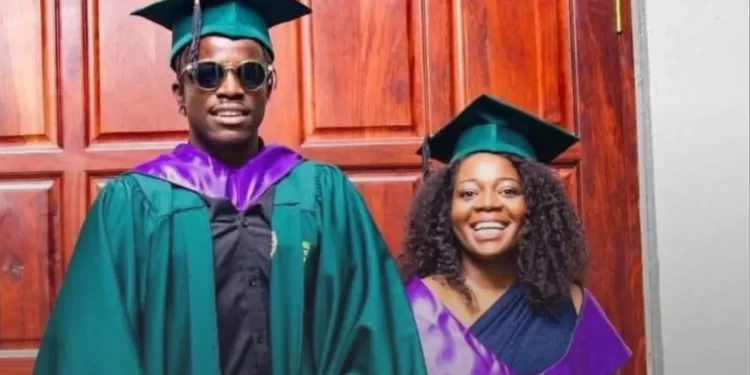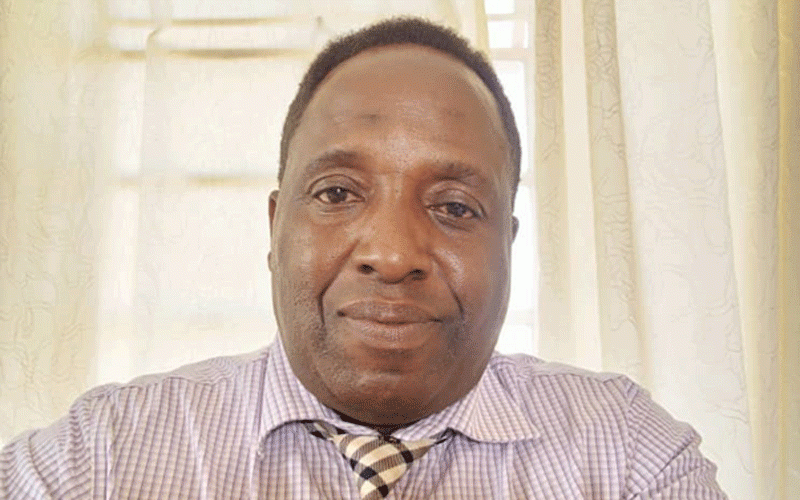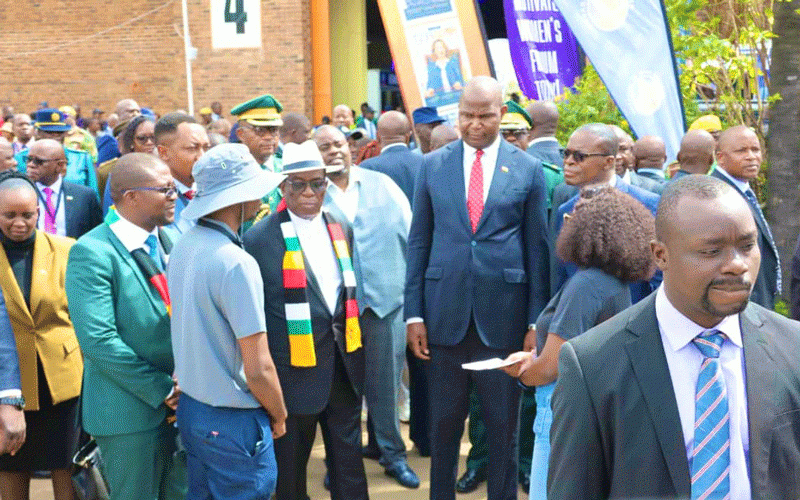
I was anxious to talk to Gemma Griffiths this week regarding her forthcoming single titled Gold, which will be released next Thursday, but was informed that she is currently on tour in Canada. I sent Gemma an e-mail where she asked me to message Taponeswa, her manager in Zimbabwe.
Gemma is becoming one of Zimbabwe’s successful female artistes. Forget the fact that she is white and often sings in Shona, a phenomenon which brings excitement among ordinary Zimbabweans.
Born in Cape Town, South Africa, on September 1, 1994, Gemma is a Zimbabwean musician. She came to be known in Zimbabwean mainstream music after she did a soulful, Shona and English interpretation of Winky D’s hit song Musarova Bigman in 2016. She also conducted her own rendition of Jah Prayzah’s Mudhara Vachauya.
Later,in 2019, Griffiths featured on highly successful Winky D song MuGarden. .
Gemma attended secondary school at Chisipite Senior School in Harare This is where her music career began. According to Taponeswa, her manager, Gemma is currently in Canada where she has given successful performances.
Although she has apparently tried to keep it a secret, rumours have it that she recently got married to a man called Mac at Three Monkeys Restaurant in Harare.
Following the completion of her high school education in Zimbabwe, Gemma has given performances at shows with South African artistes such as Jimmy Nevis, Majozi, Goodluck, Freshly Ground and Matthew Mole.
Gemma managed to continue working closely with Zimbabwean musicians while in Cape Town, sharing the stage at the Kirstenbosch Summer Concerts with one of Zimbabwe’s top artistes — Jah Prayzah, as well as with the late Zimbabwean legend Oliver Mtukudzi. at Artscape Theatre have brought her into the lime light within Zimbabwe.
- Mavhunga puts DeMbare into Chibuku quarterfinals
- Bulls to charge into Zimbabwe gold stocks
- Ndiraya concerned as goals dry up
- Letters: How solar power is transforming African farms
Keep Reading
She makes regular trips back to Zimbabwe to perform at festivals such as Hifa (which is no more) Miombo Magic and Shoko Festival.
She performed at Sofar Sounds in London in 2017, as well as performing for the UK’s prestigious music channel Mahogany Sessions.
Gemma opened for Grammy Award winning UK artist Joss Stone as part of Stone’s World Tour.
There is no doubt that Gemma is talented and has been inspired by legendary artistes such as the late Mtukudzi, Jah Prayzah and Winky D, but being a Shona speaking white woman has also helped her become what she is today — a global phenomenon.
White people are viewed by ordinary Zimbabweans as elite class citizens. The majority of whites stay in upmarket suburbs, I don’t know any whites who live in Mbare, Mufakose, Mabvuku, Mkoba, Magwegwe or Lobengula townships.
Before independence, they enjoyed a high standard of living (the majority of them still do). Social services were weighted favourably towards white people and most of them had better paid jobs. This and other colonial factors, is where many blacks in Zimbabwe began to develop an attitude where they considered whites as being superior to them.
Seriously, do you think that Gemma can outperform the likes of Prudence Katomeni-Mbofana? In my opinion, No. But why is Prudence not as prominent as Gemma? The answer is simple. Prudence does not have a white skin.
In my opinion, Winky D would not have given Prudence a second thought if she had asked him to do a collaboration on Musarove Bigman as Gemma did in 2018.
Gemma’s meteoric rise was due to her white appearance which brought a lot of attention to her among black Zimbabweans as she walked the unpaved world of the unexpected. She shattered ceilings in a black male dominated world.
Blacks, due to colonial mentality, do develop an attitude where they consider white people to be superior to them. Gemma, saw through this and decided to take advantage of that situation where she exploited it to her best ability. Her journey is one of transformation, but nothing unusual as she gets popular by singing other people’s songs such as Dr Chaii’s Rudo, Jah Prayzah's Mudhara Vachauya and the late Bob Nyabinde’s Chabuda Hapana.
If the recent announcement by Zimura (that all artistes who perform copyright songs should pay US$150 for every performance) had not been stopped by the Ministry of Justice and Legal Affairs, Gemma would have been placed in a sorry state since the songs she is popular with are mainly copyright songs from other artistes.
Gemma has travelled the world. Apart from doing gigs in many countries, she also spent time in the United States studying for a degree in music.. She has also performd with groups in South Africaa, Zambia and Kenya let alone here in Zimbabwe. As mentioned above, she has also given performances in United Kingdom. This experience as well as other factors mentioned above, gives her the global phenomenon she is today.
Singing in Shona has also assisted Gemma in her career. In her own words:
“I’ve always sung in Shona and English. I also speak Shona. It’s a beautiful language to sing in so weaving it in is natural to me. It’s my way of connecting with Zim and connecting with home. I do have strong elements of English, in order to be able to translate to all the countries that I travelled to along this journey, but I didn’t want to lose the aspect of being Zimbabwean because that’s the place that I grew up.
It’s always sort of natural and it’s got to be authentic. Obviously, being a white woman coming into the dancehall scene, I owe everything to black music culture to Zim music culture. And so, for me, I’ve also got to make sure that I’m always aware that I’m doing things authentically and in my journey. I make sure that what I’m doing is culturally appropriate and not cultural appropriation.”
Well said Gemma. We will wait and see what is coming out of your music drawers next.
Feedback: frezindi@gmail.com










